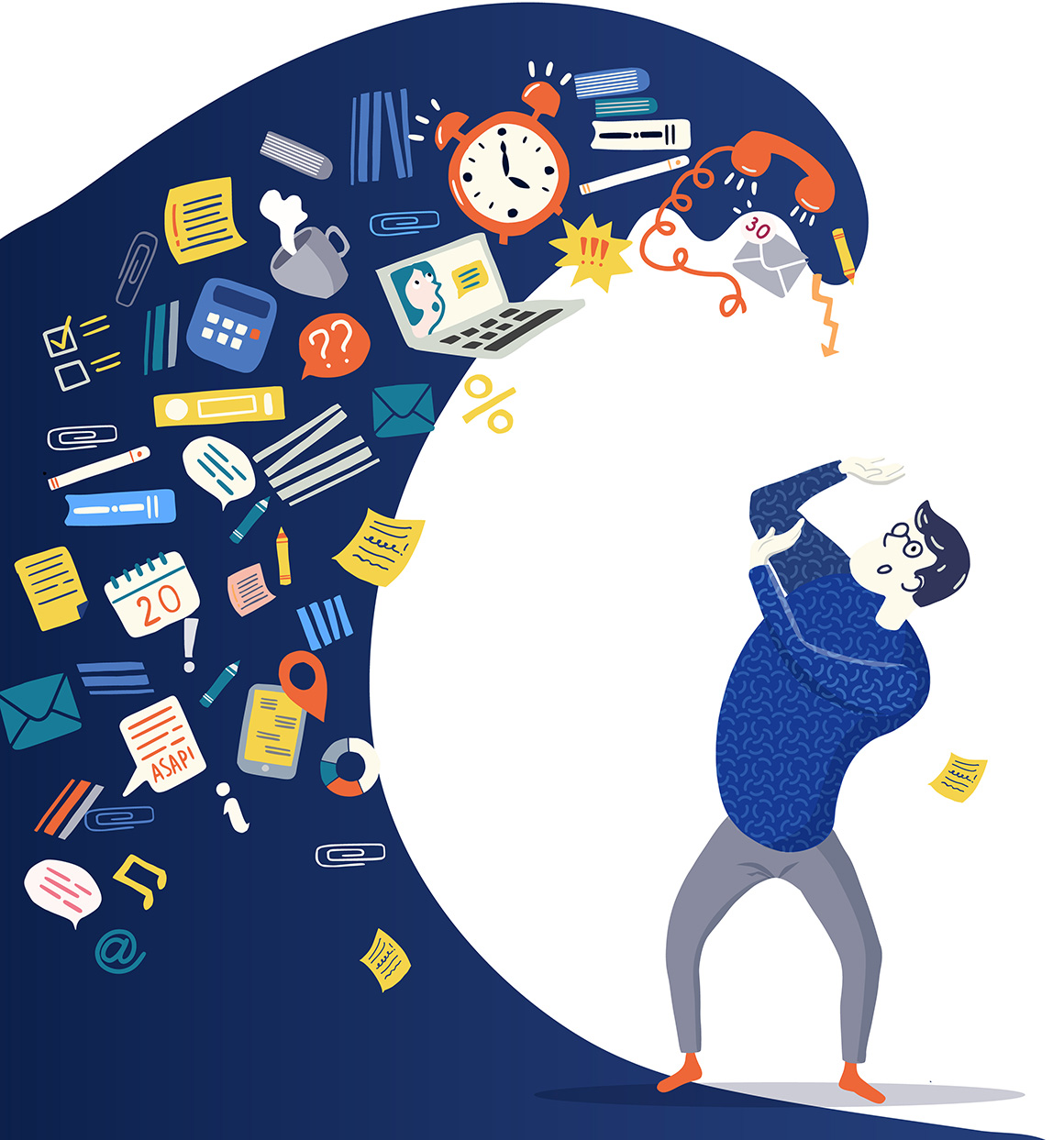You find yourself struggling to get things done.
You’re more forgetful.
And you’re wondering, “Is it just forgetfulness or something more?”
Childhood vs Adult ADHD
But ADHD is probably not on your short list. After all, it’s a childhood disorder, right? Yes and no.
ADHD is generally considered a childhood disorder and, in fact, the onset of symptoms generally occurs in early childhood. Symptoms improve over time; however, about half of children who experience ADHD will carry those symptoms into adulthood.

To further complicate things, many adults find themselves being diagnosed with ADHD for the very first time well into adulthood and usually only when symptoms become bothersome. Rather than being a new onset, it is generally thought that their symptoms in childhood were sub-clinical or may have not caused difficulties that required intervention.
Recognizing Adult ADHD
The key to a sound diagnosis of ADHD is considering the whole picture. Many of what are “symptoms” are the same things we all experience from time to time. We all get distracted. We all forget things and we all have projects we start and never finish. So when does it become a problem? Any symptoms become problematic when they interfere with one’s ability to function: at home, work or academics, and interpersonal relationships. And, that’s usually the time when people will start seeking answers and the place to start is with a qualified professional who can fully assess the situation.

When considering an ADHD diagnosis, mental health clinicians look at three main dimensions:
- hyperactivity
- Inattentiveness
- Impulsiveness
Not every person diagnosed with ADHD must have all three. Further complicating things, the way ADHD presents in adults and children is distinctly different. Symptoms in children tend to be easily observed especially at home and at school. For adults, key indicators may be more subtle, possibly because adults are more adept at masking or working around bothersome symptoms.
Hyperactivity
Hyperactivity is what you think of when someone is described as “in constant motion” or “unable to sit still”. In children, you may see it as fidgeting, climbing, spinning, or unable to stay seated.
In adults, hyperactivity can present more as restlessness and an inability to remain still for long periods, always on the go. This is the kind of restlessness that makes it difficult to sit through a movie or a meeting at work. Adults may tend to be easily bored and frustrated.
Inattention
People with attention issues tend to lose interest in things, make mistakes or miss important details, and leave tasks unfinished. Any task with multiple or complicated steps is bound to be left undone.
In children, inattention is most often noticed in their schoolwork or chores, struggling with completing their work. Forgetfulness, losing books and papers, forgetting or just not doing homework, or being easily distracted are all manifestations of inattention.
Adults with ADHD show a similar pattern of behavior. It is most often observed in a work setting but can also impact other areas of life. Problems completing tasks and difficulty keeping up with important items is common. It is not uncommon to see someone take on multiple tasks at once with the false belief that they are getting things done. Unfortunately, this attempt to manage the problem usually results in multiple unfinished tasks and work performance suffers.
Interestingly, a common feature of inattention for both adults and kids is the tendency towards over-attention or “hyper-focus” particularly on something the person finds interesting. They may spend hours gaming or watching TV. Getting them to stop is hard. This behavior seems at odds with inattention and can sometimes lead to a missed attention problem.
Impulsivity
Blurting out answers or interrupting, difficulty waiting their turn, skipping line, or acting without thinking are typical examples of impulsivity one might see in kids.
In adults, impulsivity tends to show up as overspending or impulse buying, dominating conversations (sometimes described as “constant chatter”), and engaging in reckless behaviors such as driving too fast.
Other signs of possible ADHD are not so obvious. Some of the subtle cues that someone is struggling can include:
- What may look like just daydreaming may actually be a struggle with focus and attention
- Other issues that can co-occur with ADHD, such as anxiety or low self-esteem, can mask ADHD symptoms.
- ADHD symptoms can lead to inaccurate assumptions or labeling of one’s intellectual abilities when in fact, there is no correlation between ADHD and diminished intellect.
- Increased irritability or frustration
- Avoidance or refusal to complete difficult tasks. This can look like resistant or oppositional behavior.
Getting Help
Living with untreated attention deficit hyperactivity disorder is a daily challenge, with the symptoms worsening during times of stress. A complete and comprehensive assessment from a clinician who understands Adult ADHD is the key to successful treatment.
The good news is that Adult ADHD is manageable. Treatment options for Adult ADHD may include:
- Medications to address attention or hyperactivity
- Psychotherapy to deal with co-occurring issues that may be present
- Coaching to develop effective coping strategies
Every person’s needs are unique and your clinician can help you find the treatment protocol that is right for you. If you’re struggling with ADHD, Solstice Psychiatry has the expertise to help you find the solution that is right for you. Dr. Storch specializes in the assessment and treatment of Adult ADHD and can help you find a solution that fits your needs. When you’re ready to take the next step, we are here. Ready to schedule? Click here.
